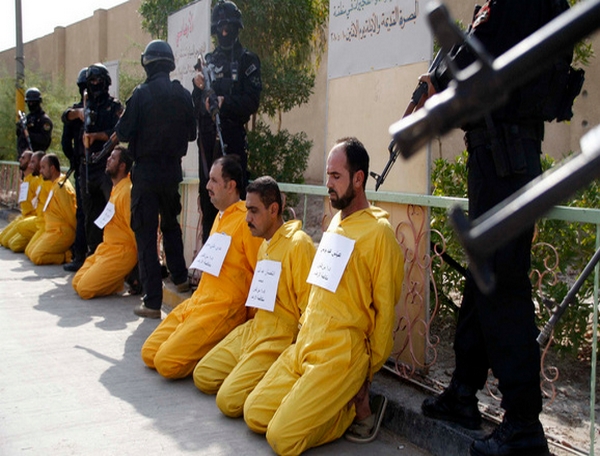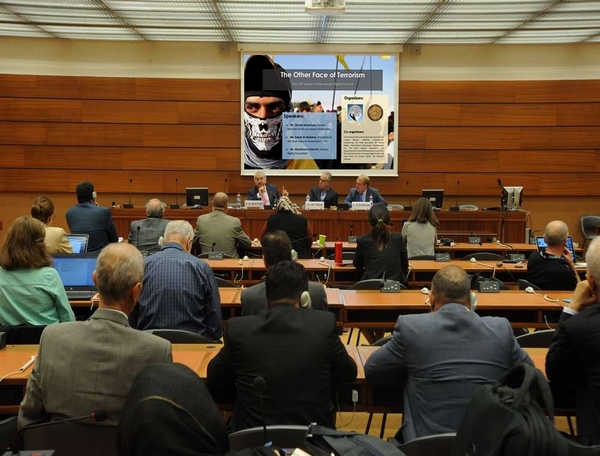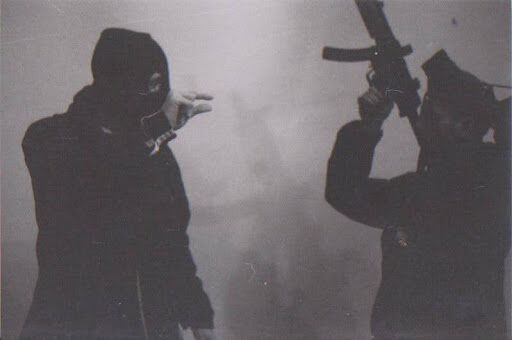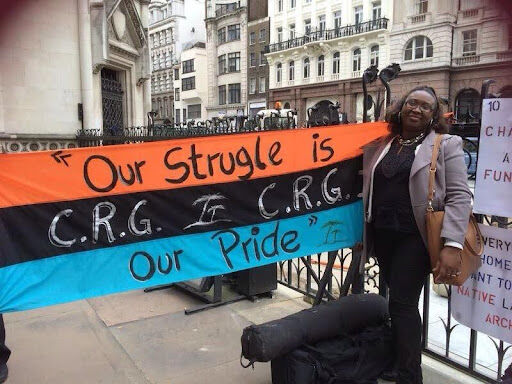US Fails to Make Any Significant Progress Regarding UPR Recommendations
Thus far no real action has been taken to address responsibility and accountability for the invasion and occupation of Iraq and all the ensuing grave violations of human rights law and the Geneva Conventions
On 1 July 2013 the Universal Periodic Review (UPR) Mid-Term Implementation Assessment (MIA) of the USA was released by UPR Info. The assessment clearly demonstrates the United States’ failure to make any real progress in implementing recommendations it received during its UPR on 5 November 2010. During its review in 2012, the US received 280 recommendations. Of these, only three have been fully implemented and 28 partially implemented.
The UPR, which was created on 15 March 2006 and is a key component of the Human Rights Council (HRC), is a unique process under which all 193 UN Member States have their human rights records reviewed. During their review States have the opportunity to outline the work they have done in advancing human rights conditions in their countries and they also receive recommendations from other Member States. These recommendations can be accepted or rejected by the State under review.
The Mid-Term Implementation Assessment was created by UPR Info, an NGO based in Geneva, and evaluates whether recommendations have been fully, partially or not implemented at all within a two and a half year period after the initial UPR. Twenty-four NGOs, including Geneva International Centre for Justice (GICJ) took part in the report.
Below are excerpts from the feedback GICJ provided regarding US implementation of its UPR recommendations, in particular with regards to Iraq:
Implementation of its obligations under IHL: The US-led invasion of Iraq and its ensuing occupation violated international law, human rights law and international humanitarian law. Violations of the Iraqi people's rights continued all throughout the occupation and continue today. The US violated IHL in numerous ways, including by attacking unprotected and civilian areas, destroying heritage and cultural sites, using cluster bombs in residential areas, using chemical weapons, such as white phosphorous and by purposely preventing aid from entering and reaching civilians and those injured, and by systematically destroying food, water, electrical and medical service sources. Under international law, the US must provide remedy and reparation for these gross violations of humanitarian law, which it has not done.
Halt human rights violations by its military forces and private security firms: The US and its forces committed endless human rights violations during their invasion and occupation of Iraq. Occupation forces used excessive force, killed indiscriminately, carried out collective punishment, used illegal weapons, subjected detainees to humiliation, ill-treatment and torture, carried out mass detentions without warrants, and did not provide due process to detainees, amongst many other violations. Calls for independent investigations into these grave violations o f human rights have gone unheeded. At one point in 2007 there were close to 200,000 private "contractors" deployed in Iraq by the US government. The actions of private military and security companies (PMSCs) go largely unmonitored and their crimes are virtually unpunished in Iraq.

Launch credible investigations into allegations of violations of human rights law by American forces in Iraq: Calls for independent investigations into these grave violations of human rights have gone unheeded. An investigation was carried out with regard to the violations committed in Abu Ghraib, but not all of those involved were charged and punishments for those charged were minimal. When charges have been started, they have later been dropped as was the case with the Marines who committed the "Haditha massacre".
Stop war crimes committed by its troops abroad and prosecute those responsible: US troops in Iraq committed grave war crimes against the civilian population. None of those responsible for these atrocities have been prosecuted for their actions. This impunity must end. We therefore also urge the US to ratify the Rome Statute of the International Criminal Court. This would allow for an international venue for prosecutions, which would be the most appropriate since violations were committed abroad.
Discontinue measures that curtail human rights and fundamental freedoms: The use of mercenaries violates the human rights of the Iraqi people and it impedes the exercise of their right to self determination. PMSCs in Iraq have committed various violations against Iraqis including torture, murder, and the destruction of property. To this day the US continues to employ PMSCs in Iraq, which continue their violations of human rights and fundamental freedoms.
Put its gross violators of human rights and war criminals on trail: None of the U.S. leaders who perpetrated the war in Iraq (under false pretences) or any of the high-level officials and military personnel involved have been put on trial for their human rights violations against the Iraqi people.
Close secret detention centers around the world, punish agents that torture, disappear, execute and arbitrarily detain people and compensate victims: Thousands of Iraqis were subjected to brutality and the use of excessive or deadly force by law enforcement officials (under U.S. control) in detention facilities in Iraq. Torture and other forms of physical abuse were rampant in interrogations and under detention. During the occupation of Iraq by the US, tens of thousands of people disappeared, were executed or were arbitrarily detained. Agents of these abuses have not been punished and no compensation has been given to the victims of these grave violations.

Prohibit and punish the use of brutality and excessive or deadly force by law enforcement officials; ban torture and ill-treatment in detention facilities abroad: UNAMI reports that forms of torture used in Iraq included: beatings with hoses, cables and sharp tools; burning detainees; pouring petrol on the bodies of detainees; sexual assault; the use of electric drills and forcing detainees to sit on sharp objects. No tangible measures have been taken to punish these brutal acts. Minimal action was taken for abuses at Abu Ghraib and no mid or high-level officials were investigated or prosecuted for their involvement.
Take measures to ensure reparation to victims of acts of torture committed under United States' control: Iraqis have undergone torture by US military forces as well as PMSCs hired by the US. Iraqi victims of torture, in particular those tortured in detention facilities like Abu Ghraib and under interrogation during the U.S. invasion and under United States' control, have not been given reparation for the violations they suffered.
Investigate, prosecute and punish those responsible of crimes of extraterritorial torture: During the 2003 U.S.-led invasion of Iraq and its ensuing occupation, torture was a wide-spread issue. Abu Ghraib is one of the most well-known cases of torture in a detention facility, but its use was used in many prisons and secret detention facilities. Torture was often used during interrogations. During the occupation hundreds of bodies bearing signs of torture would be found scattered around the country. Although an inquiry was conducted in 2004 (Taguba Report), the focus of the report was only Abu Ghraib and no real results or consequences were yielded by the inquiry. Crimes of extraterritorial torture committed in Iraq by the U.S. and its forces have mostly gone unpunished.
Prosecute the perpetrators of torture, extrajudicial executions and other serious human rights violations committed in Abu Ghraib: The U.S. launched an inquiry into the incidents of torture at Abu Ghraib in 2004, however, the report did not yield any significant results or consequences for those who perpetrated the acts of torture. The legal action taken against perpetrators was minimal when it existed at all; most perpetrators were never prosecuted; and of extreme importance, high-level officials who were aware of the problem and gave orders for the use of torture were never fully investigated or brought to justice.
Take legal action to address civilian killings by the US military troops during and after its invasion of Iraq by investigating and bringing perpetrators to justice and remedying victims: To this moment no substantial action has been taken to address the civilian killings by U.S. military troops or to bring the perpetrators to justice. International law mandates the provision of remedy and restoration for the suffering and damage inflicted. The US has yet to compensate any victims. By 2010 estimates of deaths due to the war and occupation stood at 1.5 million. The U.S. violated Geneva Conventions on endless occasions, including with the targeting of schools, mosques, markets, hotels and residential areas in Baghdad and other cities.

Consider ratifying the Rome Statute of the International Criminal Court and the Additional Protocols I and II of the Geneva Conventions: The US' continued failure to ratify the Rome Statute of the International Criminal Court is extremely unfortunate. The US-led invasion of Iraq and the ensuing occupation resulted in numerous rights violations that would fall under the mandate of the ICC including enforced disappearances, war crimes and crimes against humanity. Illegal weapons (i.e. white phosphorous) were used and civilians were killed in mass numbers and indiscriminately. The illegal invasion itself was a crime of aggression. These are all crimes that fall under the mandate of the ICC and by not ratifying the Statute, the US continues to protect itself from accountability and justice for violations it committed in Iraq.
Ratify 1st and 2nd Protocol to the Hague Convention of 1954: Iraqi heritage and cultural sites were completely destroyed by the US invasion and occupation. The US failed in every way to take any measures to protect cultural sites and property. The US used cultural sites for military purposes, for example, building bases on the ancient cities of Babylon and Ur. Thousands of archaeological sites were destroyed and whole libraries were set on fire. This failure to protect Iraqi cultural heritage was a flagrant violation of international and international humanitarian law, specifically, the Hague Conventions. The US has yet to ratify these Protocols.
Ratify the Optional Protocol to the Convention Against Torture: The US-led invasion of Iraq and the ensuing occupation resulted in numerous rights violations including torture. Examples of torture were made public with the reporting of incidents at Abu Ghraib, but the use of torture in detention centers and during interrogations were wide-spread. Torture has also been committed by PMSCs. By failing to ratify the Optional Protocol to the Convention against Torture, the US continues to avoid being held responsible and being brought to justice for all the injustices and grave rights violations it committed in Iraq.
Documenting and reporting human rights violations in Iraq
| Executions | Human Rights Violations in the context of fight against terrorism | Peaceful protests | ||||
 |
 |
 |
||||
 |
 |
 |
||||







